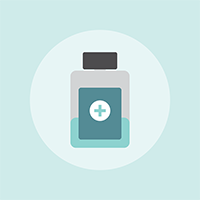 Health Savings Accounts (HSAs) allow you to pay for qualified medical expenses that aren’t covered by your high-deductible health insurance policy. It can be a wise investment, so learn more about how health savings accounts work and why you should have one.
Health Savings Accounts (HSAs) allow you to pay for qualified medical expenses that aren’t covered by your high-deductible health insurance policy. It can be a wise investment, so learn more about how health savings accounts work and why you should have one.
How to Qualify for an HSA
If you have a high-deductible health insurance policy, you qualify for an HSA. Your eligibility is re-evaluated annually.
How is an HSA Funded?
After you enroll in an HSA, you’ll fund your account with post-tax dollars. The money you contribute but don’t use is rolled over to the next year. You may take your HSA funds with you if you switch jobs, and you can even invest your HSA money in mutual funds, stocks or bonds when the total reaches a certain amount.
What Does an HSA Cover?
An HSA will cover a variety of medical expenses as long as they are not reimbursed by other means such as a long-term care policy, and you can use your HSA funds for your own medical expenses or those accumulated by your dependents. Qualifying medical expenses include:
- Acupuncture
- Addiction treatment
- Artificial limbs or prosthetics
- Chiropractors
- Dental services and dentures
- Emergency care
- Fertility enhancements
- First aid supplies
- Health insurance premiums from COBRA coverage or if you’re receiving unemployment compensation
- Laser eye surgery
- Long-term care insurance premiums
- Medical equipment
- Medicare Part A or B premiums
- Mental health treatment
- Nursing services
- Prescribed smoking cessation tools or weight loss medicine
- Prescription medications
- Surgery
- Vision care and aids
Remember that HSA will typically not cover several expenses such as:
- Babysitting or household help
- Cosmetic surgery that is unrelated to a medical condition
- Diaper service
- Electrolysis for hair removal
- Funeral expenses
- Hair transplants
- Health club dues
- Maternity clothing
- Medications that are not prescribed
- Over-the-counter diet drinks or vitamins
- Swim lessons
- Teeth whitening
- Weight-loss programs that are not prescribed by a doctor
If you use your HSA to pay for a non-qualifying expense, you must pay income tax on the funds you withdraw plus a tax penalty.
How do you Use Your HSA Funds?
Use the debit card or checks associated with your HSA account to pay for qualifying medical expenses. You will pay no taxes on your HSA distributions.
How do you Enroll in an HSA?
Talk to your employer, insurance agent or bank about starting an HSA. As soon as the account is funded, you may begin withdrawing from it.
Health Savings Accounts supplement your health insurance policy. They can be a wise investment you should consider.





